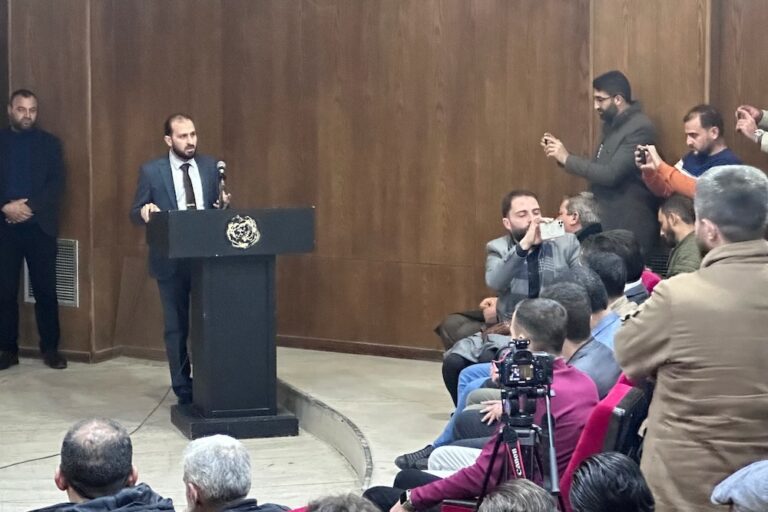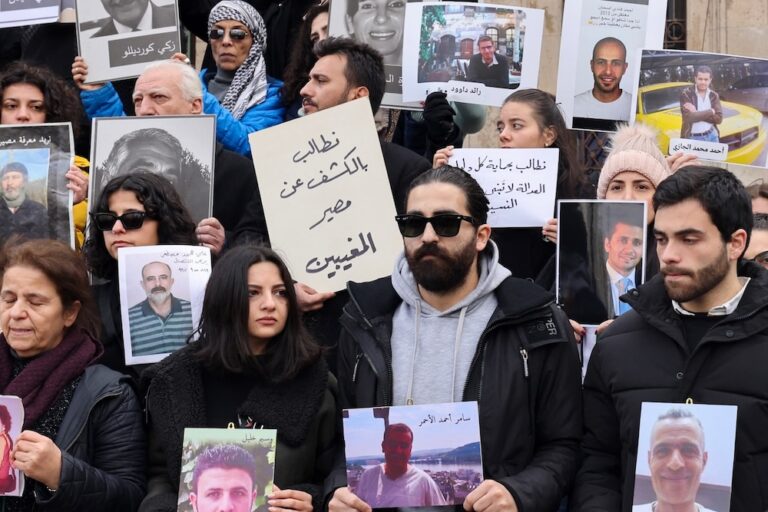The Damascus Bar Association should reverse the decision to permanently disbar lawyer and rights activist Muhanad al-Hasani, says Human Rights Watch.
Restore jailed lawyer’s credentials
(Human Rights Watch/IFEX) – New York, November 13, 2009 – The Damascus Bar Association should reverse this week’s decision to permanently disbar the lawyer and rights activist Muhanad al-Hasani, Human Rights Watch said today. Human Rights Watch also urged Syrian authorities to free al-Hasani, who is in detention awaiting trial on charges of “weakening national sentiment” and “spreading false information.”
On November 10, 2009, the bar association’s disciplinary tribunal issued a decision to permanently disbar al-Hasani because he “headed an unlicensed human rights organization without obtaining the prior approval of the bar association” and “attended sessions of the State Security Court to monitor its proceedings without being appointed as a defense lawyer by the accused.” The State Security Court operates outside the ordinary criminal justice system, with its proceedings closed to the public and families of detainees.
“The Damascus Bar Association should be defending lawyers who try to promote the rule of law in Syria, not punishing them,” said Sarah Leah Whitson, Middle East and North Africa director at Human Rights Watch. “The bar association should immediately reinstate al-Hasani and work for his release.”
Following the decision, al-Hasani issued a public letter from his cell in ‘Adra jail noting that his role as a lawyer requires “taking positions to promote the basic rights of the citizen, including civic, political, social, economic, and cultural rights.”
The bar association initiated the disciplinary proceedings against al-Hasani on August 4, a week after State Security, one of Syria’s multiple intelligence services, detained him.
Al-Hasani, 42, is president of the Syrian Human Rights Organization (Swasiah). He regularly represents activists and political detainees before the courts and is a leading monitor of the State Security Court. In the last three years, Syrian security services have frequently prevented him from leaving Syria in apparent reprisal for his human rights activities.
Information obtained by Human Rights Watch overwhelmingly suggests that al-Hasani’s arrest is due to his human rights work, particularly his monitoring of trials before the State Security Court.
The Syrian law regulating the legal profession requires the bar association to support the objectives of the ruling Ba’ath Party, although the law grants the bar nominal independence in other respects.
“The bar association should be promoting the independent monitoring of trials,” Whitson said. “Instead, they have punished a man for shedding light on some of Syria’s darkest trials.”


